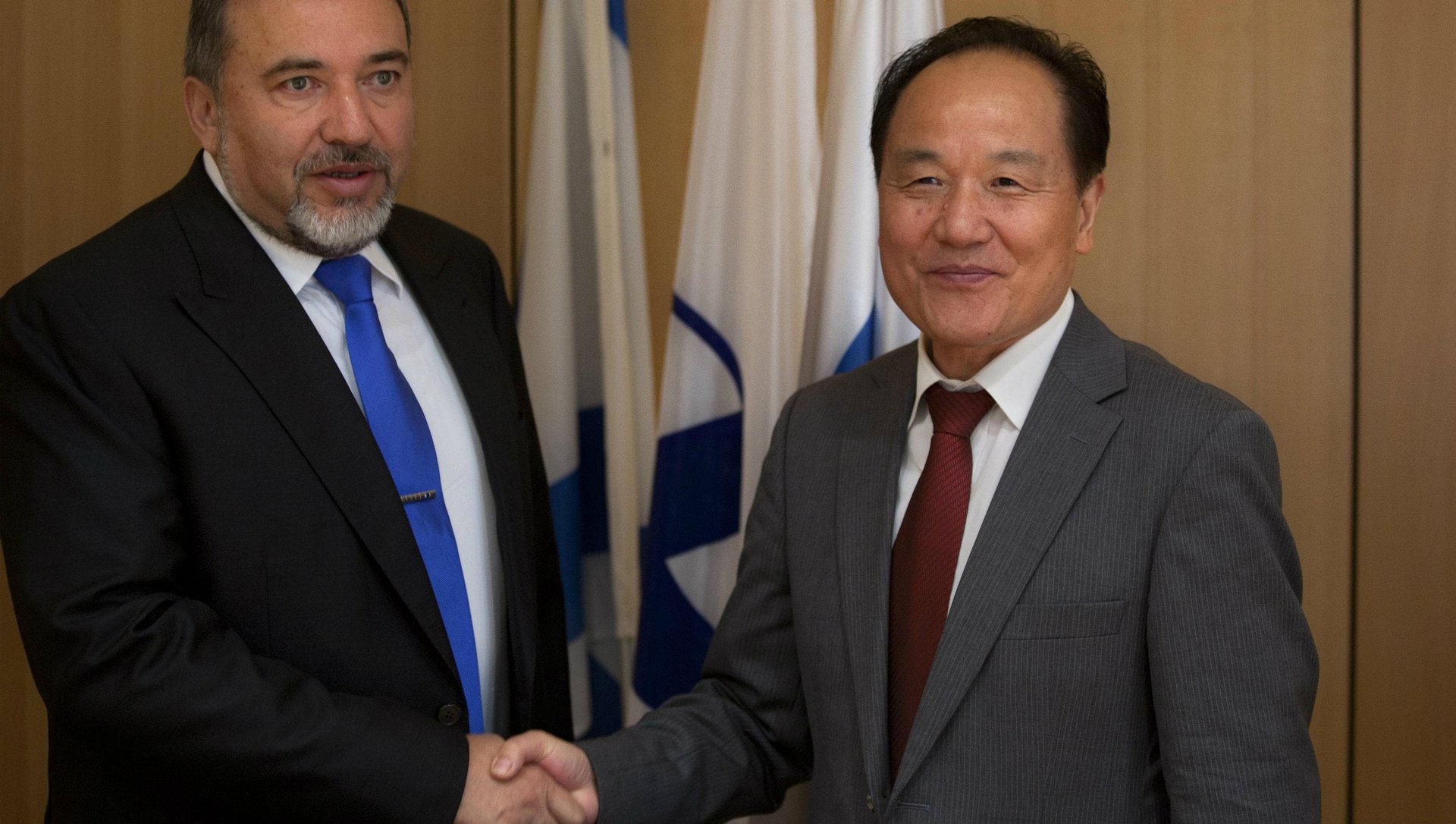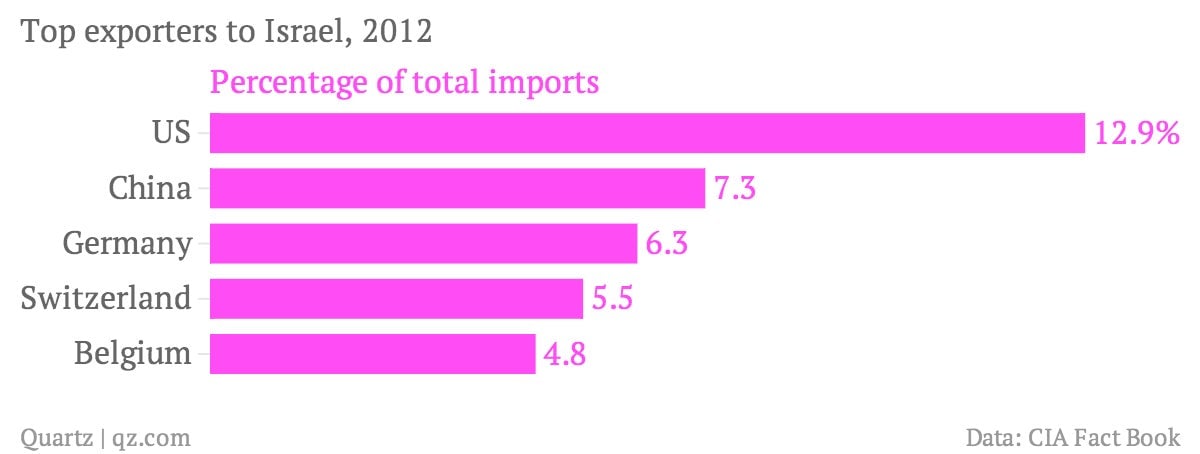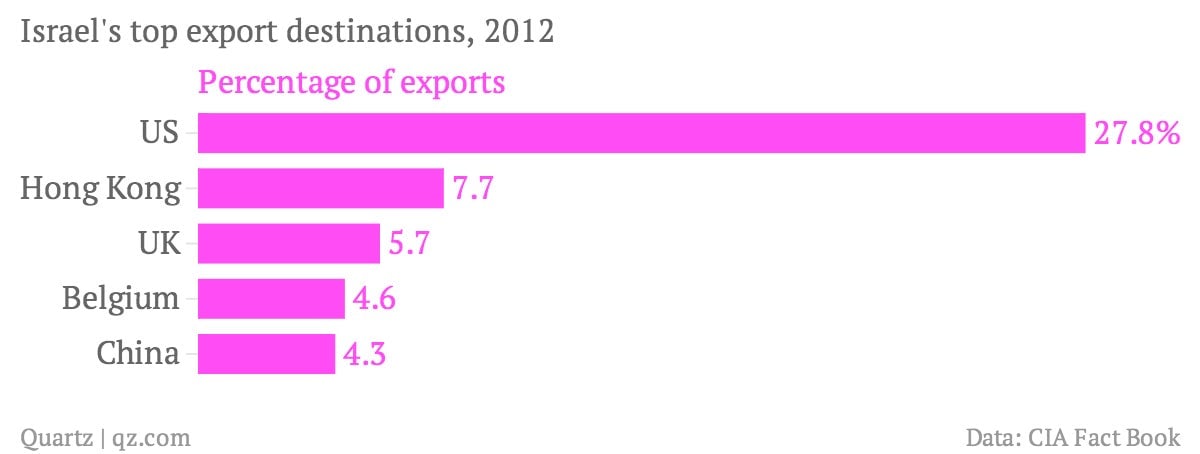China tries to walk a fine line as a Middle East peacemaker
This article has been corrected.


This article has been corrected.
China’s “special envoy on the Middle East issue,” is headed today to Israel and the Palestinian territories for his latest long-shot bid to broker a peace deal.
Career diplomat Wu Sike has been doggedly meeting with both sides since he took the Middle East job in 2009. His efforts have not always gone smoothly. In March, Wu met with the Palestinian National Authority’s foreign minister and other officials in Indonesia, and said that ”both sides of Palestine and Israel, especially the Israeli side, should lift the blockade to Palestine, remove obstacles [and] meet each other halfway.” (Israel controversially blockaded the Gaza Strip in 2007.)
Just last week, before the recent escalation of violence, Wu indicated he had pretty much sorted out hostilities between Israel and Hamas, saying on July 12: ”I recently paid a special visit to Israel and Palestine, and persuaded the two sides to treat the development of the situation in a rational and calm manner and to avoid taking actions which will increase tension.”
To be fair, China has a delicate balancing act to accomplish in the region, as it tries to exert itself as a diplomatic power to be reckoned with, even as it espouses a ”non-interference” policy for much of the rest of the world. Although China has both recognized and supported the Palestinian group Hamas since the 2006 elections that put it in power, earning criticism from Israel and the West, China and Israel have also increased diplomatic and trade ties in recent years. (China also maintains close ties to Iran, further complicating matters in the region.)
This April, Israeli president Shimon Peres made the first official Israeli state visit to China since 2003. Bilateral trade between the two countries has jumped from $3 billion in 2005 to over $10 billion in 2013, China says. The two countries are partnering on technology and agriculture projects, and China is a lead manufacturer of kosher food products, making it one of Israel’s top trade partners:

Israel exports technology and electronic equipment to China, as well as agricultural products. Military exports, though, have been stymied by the US:

Nonetheless, China has long recognized Palestine as a state and Chinese president Xi Jinping pledged his support when Palestinian president Mahmoud Abbas visited Beijing last May. (Xi assured Israel of China’s support, too, when Israeli prime minister Benjamin Netanyahu visited Beijing the same week.)
For Wu, whose previous diplomatic assignments have been mostly in the Middle East and northern Africa, the balancing act has required some quick changes. In June, he met with Palestinian National Authority prime minister Rami Hamdallah and other Palestinian officials and said that peace talks were “like a boat sailing against the current,” which “must forge ahead or it will be driven back.” China regards the promotion of peace between the two nations as “its duty and hopes the two sides could meet each other halfway,” he said.
The next day, he met with Israeli officials and emphasized the importance of the growing relationship between Israel and China, saying “China is paying high attention to the recent disappearance of three Jewish youngsters, and condemns any violent acts against civilians.”
This article said earlier that Xi Jinping visited Israel and Palestine in 2013; instead Israeli and Palestinian leaders visited Beijing that year.